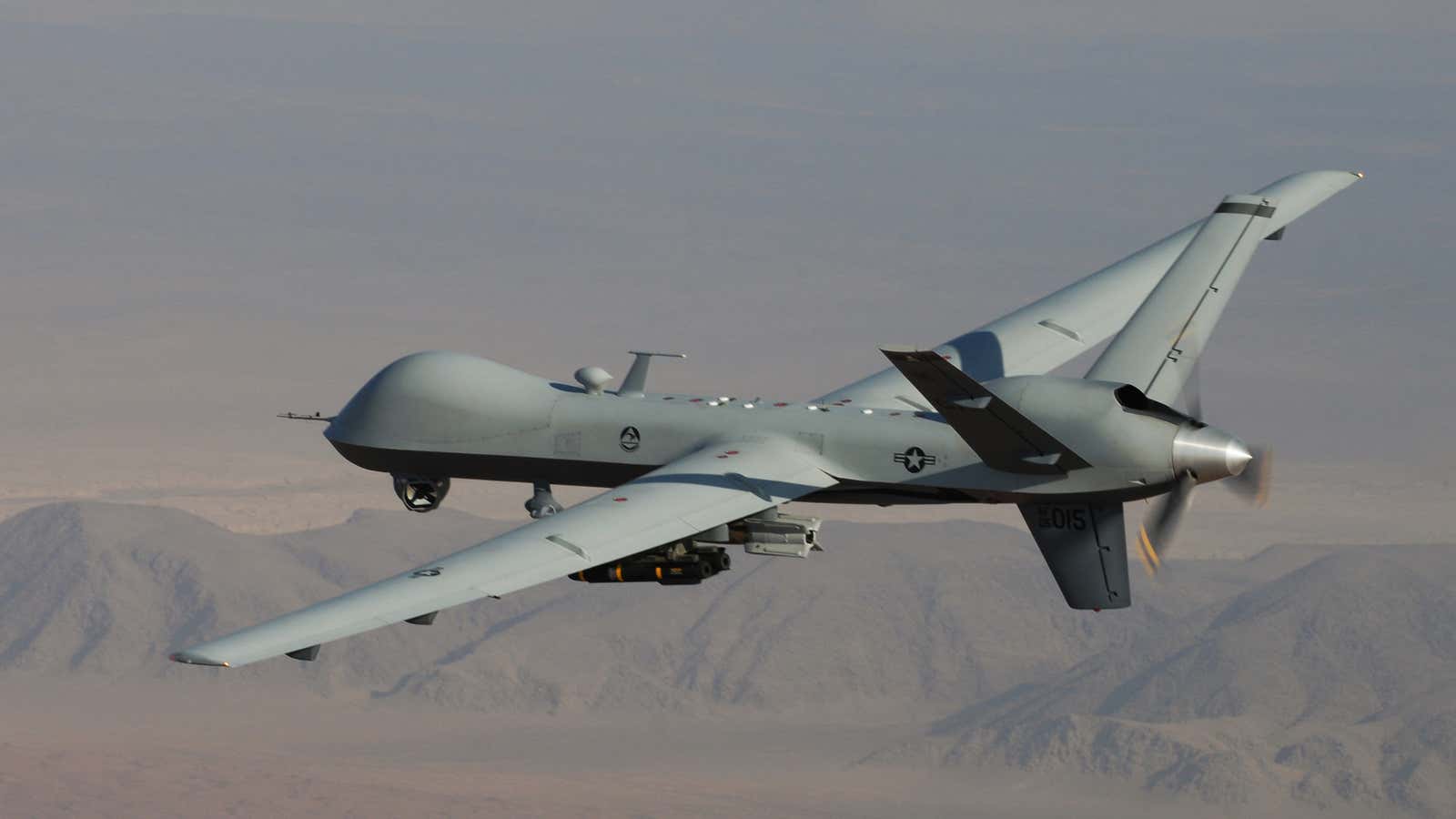At a weapons bazaar in Abu Dhabi on Feb. 18, defense officials for the United Arab Emirates announced the purchase of $1.4 billion in American military hardware, including $197 million in drones built by General Atomics Aeronautics, which supplies the US military with its Predator and Reaper drones.
While armed forces in the United Kingdom and Italy have purchased and fielded drones that include mounting points for missiles, the aircraft GAA will sell to the UAE will be only be capable of “intelligence, surveillance, and reconnaissance.” The UAE’s air force will have a good view—but not a view to a kill.
The deal comes amid increased interest in the Middle East and Africa for remotely piloted vehicles, which in the hands of the US military have changed warfare and counter-terrorism, providing reconnaissance for soldiers and spies but also delivering deadly remote strikes against terrorists and nearby civillians under questionable legal authority.
But drones, like any technology, are tools in human hands. The UAE won’t likely use the aircraft to make war but for border control and internal intelligence. The UAE’s kingdoms already monitor and censor communications and have pushed back against pro-democracy activists. The US State Department approves all sales of US military hardware abroad, including drones.
While other companies around the world manufacture drones, including Denel, a division of South Africa’s state military contractor, companies like Israel Aerospace Industry and Elbit Systems Ltd. in Israel, which began using drones in the seventies, remain the biggest competitors for GAA and other American firms. Still, the US military’s high demand (some 7,000 drones have been bought by the US military) and usage rate (some 2 million hours of flight time, according to GAA) give the American company greater experience than many competitors.
While drone manufacturers are still largely focused on government contracts, whether military or for border control and scientific research, more countries are allowing commercial use of drones or preparing air space regulations to enable it. In 2015, the US will open its skies to commercial drones.
